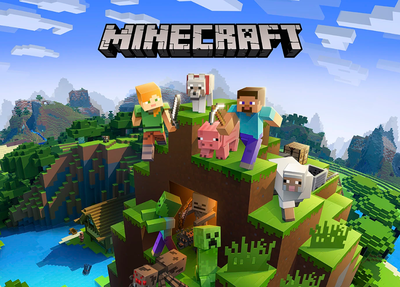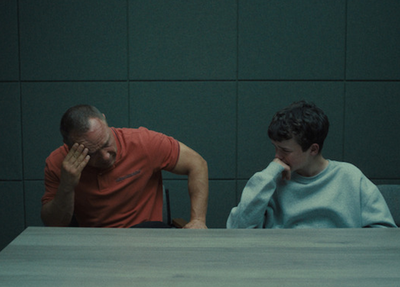
What’s really going on there? Bullying IRL vs on-screen
Caitlin on April 24, 2023
As adults it is easy for us to feel shocked by confronting bullying scenes and themes, and all we want to do is bubble wrap our tamariki and rangatahi so they don’t have to feel the same pain as the characters. However, is what we watch on-screen the actual reality of growing up today and do our rangatahi feel the same as us after watching this type of content?
"But you're, like, really pretty. So you agree? You think you're really pretty?" — Regina George, Mean Girls.
We wanted to find out how rangatahi really feel when they watch bully-heavy content. Should we be stricter when it comes to age-ratings and content warnings, or is it okay to relax when situations feel so far-fetched?
Who better to ask than young people themselves? We talked with a group of young people aged from 13-15 about what they thought of on-screen bullying depictions and how that compares to bullying in real–life, and here is what they had to say.
Before we dive in we aren’t saying that bullying isn’t a thing in Aotearoa. It absolutely exists here, especially in our schools and online. If you know someone or you experiencing any type of bullying we have created a list of resources at the end where you can reach out for support.
Is bullying in films and series relatable?
Young people told us that we need to consider that this content is usually coming out of the US and Hollywood. Not only is schooling in Aotearoa different to the US, high school life shown in films and series is even more dramatized than probably what even happens at American schools. Intense levels of cruelty, as well as the physical and mental pain shown is misleading.
”I thought high school would be different because of movies.” — Young person
“When you think of on-screen bullying you think of fake bullying.” — Young person
On-screen, we see so many physical altercations, public humiliations and nasty verbal attacks happening in offline spaces, like school playgrounds, assemblies, parties and while walking home. It is not a secret that a lot of bullying now happens online and young people think that bullying in-person is not as common. In real life whether it exists within those settings or not behind closed doors and within online chat groups is where real damage can be done.
“People saying nasty stuff straight to characters faces. What actually happens is that people laugh at you behind your back.” — Young person
‘Films contain bullying that is not realistic of what people go through.” — Young person
From sitcoms, drama series to coming of age films we have seen so many bullying scenes that have a big bad bully vs a sweet struggling wide-eyed young person. Young people told us that whether this is central to the plotline or not it is clear that one character is bad and the other is good – but this isn’t quite the case in real life.
“No one is either good or bad in real life which makes on-screen bullies not realistic and the situations not relatable.” — Young person
“In movies, bullies are super nasty and are not balanced.” — Young person
Who are the bullies in real life?
Films and series aimed at young people today often include pivotal characters such as; the jerk-jock, the queen-bee and her minions, and the school-yard bully, who make the main characters’ lives a living hell. The young people we talked with explained that bullies in real life aren’t actually the evil monsters we are watching. Instead they highlighted that humans are complex and also growing and learning at the same time as us. In fact, the young people told us that the people they are most likely to get bullied by are their friends.
“A lot of people say talk with your friends but it is embarrassing telling other’s especially because it is usually your friends who are bullying you.” — Young person
Depictions on-screen often show arguments and trying periods between friends but rarely show young people navigating being bullied by a friend that they care about. Young people told us that what we see on-screen isn’t the lived experience of what young people are navigating in real life – including the bullies.
“People are complicated and they are your friends.” — Young person
“Also my friends are going through a lot too – will telling on them or uncover something else personal for them…in movies bullies in movies are super nasty and not balanced. In real life people are complicated and this is not shown on-screen.” - Young person
Life is not black and white, like in the movies where the bullies are bad and the good kids are perfect. In fact young people know that there are many layers to the people around them. They have a lot of love and empathy for their friends and what they are going through. The young people told us that this layer of complexity makes it challenging to recognise when you are actually being bullied in real life.
“The problem is that people can’t recognise bullying in real life.” — Young person
"We don’t see this in movies which makes it harder for people to identify as bullying when this is happening to them.” — Young person
Flipping the parenting script
It is hard to change your parenting approach when trying to help and guide your precious pēpi. The further down your parenting journey you get the more you want to wrap them in cotton wool and burn all devices. We love your intention and encourage you to not change this. Instead, when watching anything with bullying content in it (with or without your kids) young people want you to not get sucked into what is happening on screen.
“Parents often ask if you’re okay and are influenced by the unrealistic content.” — Young person
“What you watch on-screen isn’t necessarily what your child is going though.” — Young person
While a characters’ on-screen situations might be unrealistic what they are feeling could actually be relatable. Young people are a group who can easily recognise feelings such as loneliness, isolation and humiliation. They told us that they want parents to focus less on the characters experiences and more on the feelings demonstrated instead.
“You can relate to characters in shows by what they are feeling and not the context.” — Young person
“Validate young people feelings – experiences are different in real-life.” — Young person
Young people today are empathetic, passionate and supportive. We are hoping that these unrealistic bullying films and series offers the opportunity for parents, caregivers and teachers, as we as friends, siblings and peers, to look past the eye-roll content and chat about the more important things like a characters’ emotions.
Similar to the ending of a lot of the bullying films and series, we are ending this blog with an uplifting message demonstrating this empathy young people have.
“You might be going through something that doesn’t look the same as it does on-screen, but that doesn’t mean what you’re going through isn’t real.” — Young person
Helplines
If you or someone you know needs to talk:
- Free call or text 1737 any time for support from a trained counsellor
- Lifeline
- Youthline
- 0800 What’s Up
Further reading
- Talking with young people about what they’re watching
- Bullying Free NZ
- HOW TO STOP ONLINE BULLYING – Netsafe
- ONLINE BULLYING: ADVICE FOR PARENTS – Netsafe
- ONLINE BULLYING HELP FOR YOUNG PEOPLE – Netsafe
- Pink Shirt Day – Mental Health Foundation
Subscribe to our blog
Stay up to date with the Classification Office blog.


